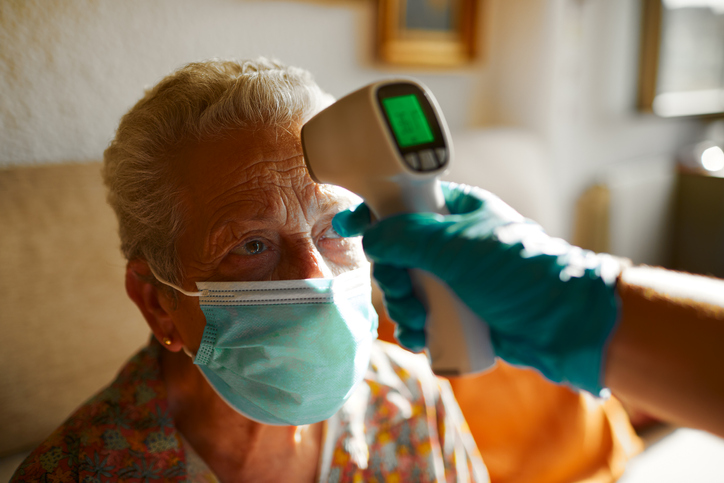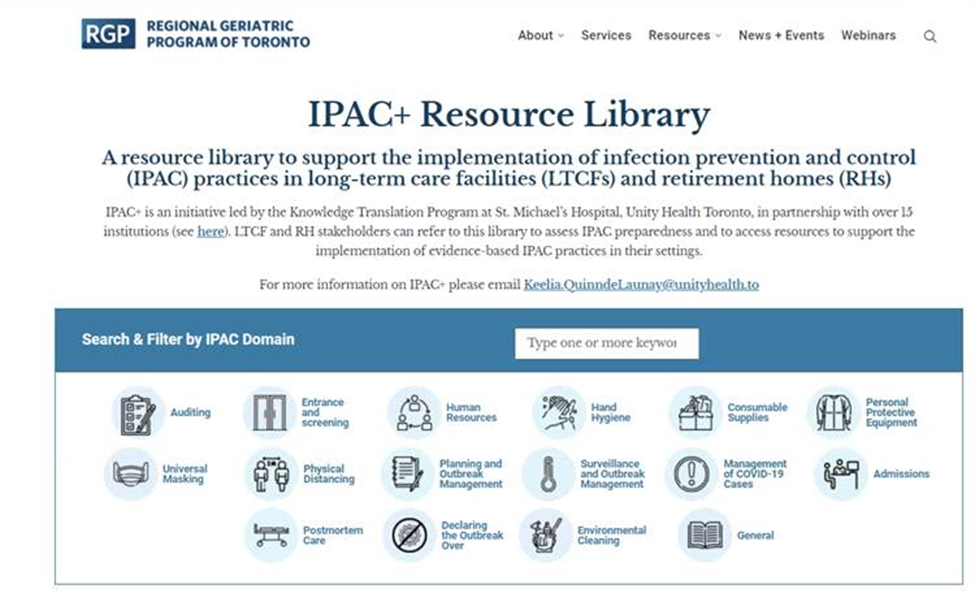COVID-19 support for long-term care

The pandemic’s impact on long-term care (LTC) homes has been a devastating glut of COVID-19 infections and deaths in residents and staff, and isolation of residents from their families and caregivers. It has also highlighted long-standing challenges, such as poor infection prevention and control (IPAC) protocols, inadequate attention to complex resident needs, failure to support the LTC home workforce, and a lack of integration of these homes within the health and social systems.
Importantly, there is an intersection between poverty and long-term care homes staff as half of long-term care homes staff cases were found in lower income neighborhoods. Many long-term care homes staff live in multigenerational households and most infections among staff of these homes are likely acquired in the community
The Knowledge Translation Program at St. Michael’s Unity Health Toronto, an OSSU research centre led by Dr. Sharon Straus, is one of many OSSU research centres that have stepped up with resources and supports to help with COVID-19. The Knowledge Translation Program has mobilized a multidisciplinary team of more than 30 people and organizations to help LTC homes and retirement residences with IPAC and other urgent needs.
During the pandemic, government explicitly asked acute care hospitals to partner with long-term care homes to help with IPAC.
“This project arose directly from this [request] and represents a co-created project involving residents, families, clinicians, managers, policy makers and researchers,” says Dr. Straus, who is also physician-in-chief at St. Michael’s. “Over time, the intervention has developed to include wellness resources for frontline staff as well; given the stress, anxiety and moral injury that many have experienced with the pandemic, their mental health is at risk.”
The project is being rolled out in partnership with a hugely diverse set of stakeholder partners. These include caregivers/families of residents, long-term care homes, the Public Health Agency of Canada, Public Health Ontario, Toronto Central LHIN, Champlain LHIN, Toronto Public Health, Ottawa Public Health, Canadian Foundation for Healthcare Improvement, Family Councils Ontario, the Ontario Long-term Care Association, acute care hospitals, Ontario Personal Support Workers Association, regional geriatric programs, and researchers and clinicians from about 20 disciplines.
More than one-third of long-term care homes in Ontario experienced COVID-19 outbreaks, resulting in 77% of deaths in residents and 6.5% of staff infections, according to a report from the Canadian Institute for Health Information.
“We hope that this project will decrease infections in long-term care homes and optimize wellness and resilience amongst long-term care home staff,” says Dr. Straus.
“One of our partners in a long-term care home said ‘ this is the missing piece that will help us help our residents and staff’.”
Resources include:
- An infection prevention and control library
- An interactive IPAC self-assessment tool for LTC
- A facilitator to help LTC homes implement IPAC resources
